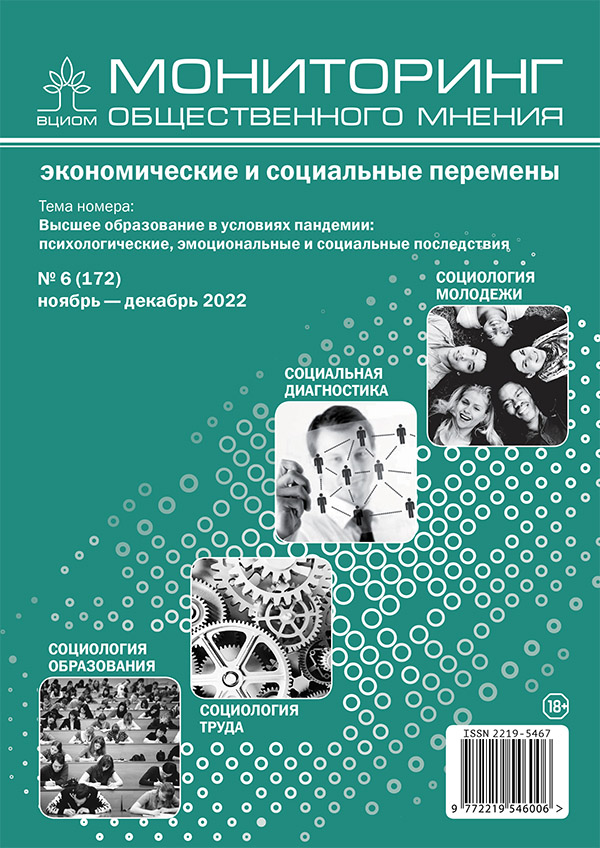Psychological Well-Being of Russian University Students During the COVID-19 Pandemic: The Most Vulnerable Groups and the Impact of Learning Format
DOI:
https://doi.org/10.14515/monitoring.2022.6.2288Keywords:
psychological well-being, COVID-19 pandemic, student experience, students, universities, PHQ-8, depression, distance learning, blended learningAbstract
Students are one of the most psychologically vulnerable social groups. Scientific studies reveal that the COVID-19 pandemic and the forced transition to distance learning appeared to be additional stress factors that negatively affected college students’ psychological well-being and mental health. This study has gathered and analyzed the data on the prevalence of signs of psychological distress among Russian students, who are underrepresented in the area of students post-pandemic well-being research.
The study is based on data from an online survey of Russian university students conducted in 2021 (N = 25,400 students). To assess students’ psychological distress, we used a standardized Patient Health Questionnaire (PHQ-8), a widely used measure designed to detect the presence and severity of depressive symptoms. The results of the study show that the vast majority of students have mental health issues. Female gender, low socio-economic status, the first year of education, full-time learning, and particular field of study were credible predictors of depression. The additional predictor for depression was a type of learning. Students with blended learning (online and in-person classes) showed significantly higher depression levels.
Acknowledgements. This study was supported by the Tomsk State University Development Programme (Priority-2030).
Downloads
Published
How to Cite
Issue
Section
License
Copyright (c) 2022 Monitoring of Public Opinion: Economic and Social Changes Journal (Public Opinion Monitoring) ISSN 2219-5467

This work is licensed under a Creative Commons Attribution-NonCommercial-ShareAlike 4.0 International License.






